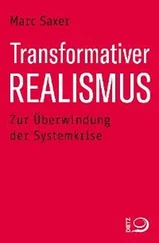Mark Fisher - Capitalist Realism - Is There No Alternative?
Здесь есть возможность читать онлайн «Mark Fisher - Capitalist Realism - Is There No Alternative?» весь текст электронной книги совершенно бесплатно (целиком полную версию без сокращений). В некоторых случаях можно слушать аудио, скачать через торрент в формате fb2 и присутствует краткое содержание. Жанр: Старинная литература, на английском языке. Описание произведения, (предисловие) а так же отзывы посетителей доступны на портале библиотеки ЛибКат.
- Название:Capitalist Realism: Is There No Alternative?
- Автор:
- Жанр:
- Год:неизвестен
- ISBN:нет данных
- Рейтинг книги:4 / 5. Голосов: 1
-
Избранное:Добавить в избранное
- Отзывы:
-
Ваша оценка:
- 80
- 1
- 2
- 3
- 4
- 5
Capitalist Realism: Is There No Alternative?: краткое содержание, описание и аннотация
Предлагаем к чтению аннотацию, описание, краткое содержание или предисловие (зависит от того, что написал сам автор книги «Capitalist Realism: Is There No Alternative?»). Если вы не нашли необходимую информацию о книге — напишите в комментариях, мы постараемся отыскать её.
Capitalist Realism: Is There No Alternative? — читать онлайн бесплатно полную книгу (весь текст) целиком
Ниже представлен текст книги, разбитый по страницам. Система сохранения места последней прочитанной страницы, позволяет с удобством читать онлайн бесплатно книгу «Capitalist Realism: Is There No Alternative?», без необходимости каждый раз заново искать на чём Вы остановились. Поставьте закладку, и сможете в любой момент перейти на страницу, на которой закончили чтение.
Интервал:
Закладка:
Secondly, postmodernism involved some relationship to modernism. Jameson's work on postmodernism began with an interrogation of the idea, cherished by the likes of Adorno, that modernism possessed revolutionary potentials by virtue of its formal innovations alone. What Jameson saw happening instead was the incorporation of modernist motifs into popular culture (suddenly, for example, Surrealist techniques would appear in advertising). At the same time as particular modernist forms were absorbed and commodified, modernism's credos -its supposed belief in elitism and its monological, top-down model of culture -were challenged and rejected in the name of 'difference', 'diversity' and 'multiplicity'. Capitalist realism no longer stages this kind of confrontation with modernism. On the contrary, it takes the vanquishing of modernism for granted: modernism is now something that can periodically return, but only as a frozen aesthetic style, never as an ideal for living.
Thirdly, a whole generation has passed since the collapse of the Berlin Wall. In the 1960s and 1970s, capitalism had to face the problem of how to contain and absorb energies from outside. It now, in fact, has the opposite problem; having all-too successfully incorporated externality, how can it function without an outside it can colonize and appropriate? For most people under twenty in Europe and North America, the lack of alternatives to capitalism is no longer even an issue. Capitalism seamlessly occupies the horizons of the thinkable. Jameson used to report in horror about the ways that capitalism had seeped into the very unconscious; now, the fact that capitalism has colonized the dreaming life of the population is so taken for granted that it is no longer worthy of comment. It would be dangerous and misleading to imagine that the near past was some prelapsarian state rife with political potentials, so it's as well to remember the role that commodification played in the production of culture throughout the twentieth century. Yet the old struggle between detournement and recuperation, between subversion and incorporation, seems to have been played out. What we are dealing with noW is not the incorporation of materials that previously seemed to possess subversive potentials, but instead, their precorporation: the pre-emptive formatting and shaping of desires, aspirations and hopes by capitalist culture. Witness, for instance, the establishment of settled 'alternative' or 'independent' cultural zones, which endlessly repeat older gestures of rebellion and contestation as if for the first time. 'Alternative' and 'independent' don't designate something outside mainstream culture; rather, they are styles, in fact the dominant styles, within the mainstream. No-one embodied (and struggled with) this deadlock more than Kurt Cobain and Nirvana. In his dreadful lassitude and objectless rage, Cobain seemed to give wearied voice to the despondency of the generation that had come after history, whose every move was anticipated, tracked, bought and sold before it had even happened. Cobain knew that he was just another piece of spectacle, that nothing runs better on MTV than a protest against MTV; knew that his every move was a cliche scripted in advance, knew that even realizing it is a cliche. The impasse that paralyzed Cobain is precisely the one that Jameson described: like postmodern culture in general, Cobain found himself in 'a world in which stylistic innovation is no longer possible, [where] all that is left is to imitate dead styles, to speak through the masks and with the voices of the styles in the imaginary museum'. Here, even success meant failure, since to succeed would only mean that you were the new meat on which the system could feed. But the high existential angst of Nirvana and Cobain belongs to an older moment; what succeeded them was a pastiche-rock which reproduced the forms of the past without anxiety.
Cobain's death confirmed the defeat and incorporation of rock's utopian and promethean ambitions. When he died, rock was already being eclipsed by hip hop, whose global success has presupposed just the kind of precorporation by capital which I alluded to above. For much hip hop, any 'naIve' hope that youth culture could change anything has been replaced by the hardheaded embracing of a brutally reductive version of 'reality'. 'In hip hop', Simon Reynolds pointed out in a 1996 essay in The Wire magazine,
'real' has two meanings. First, it means authentic, uncompromised music that refuses to sell out to the music industry and soften its message for crossover. 'Real' also signifies that the music reflects a 'reality' constituted by late capitalist economic instability, institutionalized racism, and increased surveillance and harassment of youth by the police. 'Real' means the death of the social: it means corporations who respond to increased profits not by raising payor improving benefits but by .... downsizing (the laying-off the permanent workforce in order to create a floating employment pool of part-time and freelance workers without benefits or job security).
In the end, it was precisely hip hop's performance of this first version of the real -'the uncompromising' -that enabled its easy absorption into the second, the reality of late capitalist economic instability, where such authenticity has proven highly marketable. Gangster rap neither merely reflects pre-existing social conditions, as many of its advocates claim, nor does it simply cause those conditions, as its critics argue -rather the circuit whereby hip hop and the late capitalist social field feed into each other is one of the means by which capitalist realism transforms itself into a kind of anti-mythical myth. The affinity between hip hop and gangster movies such as Scarface, The Godfather films, Reservoir Dogs, Goodfelias and Pulp Fiction arises from their common claim to have stripped the world of sentimental illusions and seen it for 'what it really is': a Hobbesian war of all against all, a system of perpetual exploitation and generalized criminality. Inhip hop, Reynolds writes, 'To "get real" is to confront a state-of-nature where dog eats dog, where you're either a winner or a loser, and where most will be losers'.
The same neo-noir worldview can be found in the comic books of Frank Miller and in the novels of James Ellroy. There is a kind of machismo of demythologization in Miller and Ellroy's works. They pose as unflinching observers who refuse to prettify the world so that it can be fitted into the supposedly simple ethical binaries of the superhero comic and the traditional crime novel. The 'realism' here is somehow underscored, rather than undercut, by their fixation on the luridly venal -even though the hyperbolic insistence on cruelty, betrayal and savagery in both writers quickly becomes pantomimic. 'In his pitch blackness', Mike Davis wrote of Ellroy in 1992, 'there is no light left to cast shadows and evil becomes a forensic banality. The result feels very much like the actual moral texture of the Reagan-Bush era: a supersaturation of corruption that fails any longer to outrage or even interest'. Yet this very desensitization serves a function for capitalist realism: Davis hypothesized that 'the role of L.A. noir' may have been 'to endorse the emergence of homo reaganus'.
2
What if you held a protest and everyone carne?
In the cases of gangster rap and Ellroy, capitalist realism takes the form of a kind of super-identification with capital at its most pitilessly predatory, but this need not be the case. In fact, capitalist realism is very far from precluding a certain anticapitalism. After all, and as Zizek has provocatively pointed out, anti-capitalism is widely disseminated in capitalism. Time after time, the villain in Hollywood films will turn out to be the 'evil corporation'. Far from undermining capitalist realism, this gestural anti-capitalism actually reinforces it. Take Disney/ Pixar's Wall-E (2008). The film shows an earth so despoiled that human beings are no longer capable of inhabiting it. We're left in no doubt that consumer capitalism and corporations -or rather one mega-corporation, Buy n Large -is responsible for this depredation; and when we see eventually see the human beings in offworld exile, they are infantile and obese, interacting via screen interfaces, carried around in large motorized chairs, and supping indeterminate slop from cups. What we have here is a vision of control and communication much as Jean Baudrillard understood it, in which subjugation no longer takes the form of a subordination to an extrinsic spectacle, but rather invites us to interact and participate. It seems that the cinema audience is itself the object of this satire, which prompted some right wing observers to recoil in disgust, condemning Disney/Pixar for attacking its own audience. But this kind of irony feeds rather than challenges capitalist realism. A film like Wall-E exemplifies what Robert Pfaller has called 'interpassivity': the film performs our anti-capitalism for us, allowing us to continue to consume with impunity. The role of capitalist ideology is not to make an explicit case for something in the way that propaganda does, but to conceal the fact that the operations of capital do not depend on any sort of subjectively assumed belief. It is impossible to conceive of fascism or Stalinism without propaganda -but capitalism can proceed perfectly well, in some ways better, without anyone making a case for it. Zizek's counsel here remains invaluable. Ilf the concept of ideology is the classic one in which the illusion is located in knowledge', he argues,
Читать дальшеИнтервал:
Закладка:
Похожие книги на «Capitalist Realism: Is There No Alternative?»
Представляем Вашему вниманию похожие книги на «Capitalist Realism: Is There No Alternative?» списком для выбора. Мы отобрали схожую по названию и смыслу литературу в надежде предоставить читателям больше вариантов отыскать новые, интересные, ещё непрочитанные произведения.
Обсуждение, отзывы о книге «Capitalist Realism: Is There No Alternative?» и просто собственные мнения читателей. Оставьте ваши комментарии, напишите, что Вы думаете о произведении, его смысле или главных героях. Укажите что конкретно понравилось, а что нет, и почему Вы так считаете.












